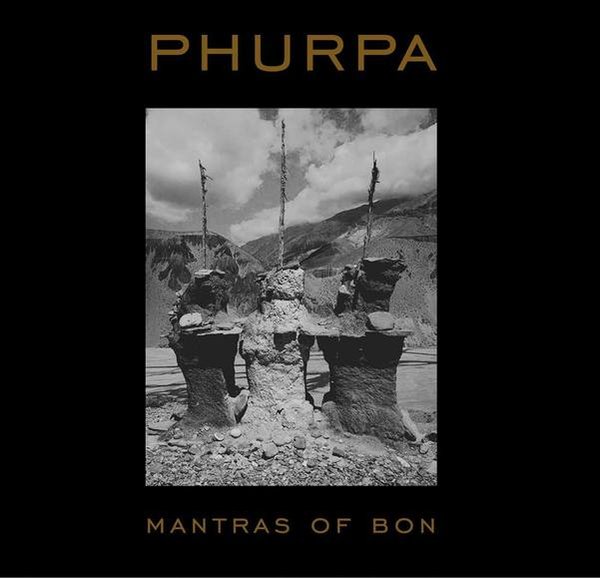
 |
|
 |
Format: CD Label & Cat.Number: Zoharum ZOHAR 075-2 Release Year: 2014 Note: latest recordings by the Russian re-establishers of Tibetan Ritual Music (in the oldest Tibetan religious {pre-Buddhist} tradition of Bön) feat. the very expressive female singer ALISSA NICOLAI on the first two tracks (part I), three other ceremonies (one recorded at CTM festival in Berlin) concentrate on the contemplative power of male throat singing (tantric overtune chanting); over 70 min. playtime (2nd silver ed.)
Price (incl. 19% VAT): €12.00 More Info"Zoharum would like to present the latest album by the band entitled "Mantras of Bon." It is an extraordinary release, even for such an extraordinary and unusual project as PHURPA. More than 70 minutes of music here is divided into two parts. The first one, featuring Alissa Nicolai on vocals, shows the band from a completely different angle; the other one presents the most important and interesting sessions recorded over the past few years, with a recording from CTM festival where they impressed the audience with "kuntunzangpo.""Mantras of Bon" is an excellent introduction into the adventures with PHURPA, the world of Tibetan music filtered by contemporary reinterpretation free from rigid rules. It may enchant both those looking for interesting sacral music and the ones searching for a new form of sonic statement. This 3-panel ecopak release is strictly limited to 500 copies." [label info] www.zoharum.com "It's been a while since I last heard Phurpa, the musical project of Alexey Tegin, but Phurpa is a real band, who play ritual music inspired by that from Egypt, Iran, Tibet and use instruments from the latter culture. On this new release, they have five pieces, three of which are live recordings, as Phurpa plays around frequently. In the first two pieces Alissa Nicolai is the guest singer. She wails and screams about and makes that Phurpa sounds different than before. More Diamanda Galas I thought. Phurpa seems to be adding a set of curious sounds that come across like a stale wind over a vast empty plain. In the other three pieces the more traditional Phurpa sound is present. Much overtone singing as well as throat singing in 'Mu-Ye', the final live piece, as well as in 'Kuntunzangpo'. In both no other instruments seem to be present, but in 'Mi Dub' there is also some percussion. The music is very intense, but for me lacks the immediate presence of the musicians. I can imagine a situation in which this would fit perfectly - dimly lit, incense, dark, and musicians surrounding the audience, cavernous space - and such circumstances one simply doesn't have at home. That is something I regret when listening to this. It makes this music more difficult to get in to, I think. I especially liked the three Phurpa pieces at the end, for all their sparse intensity and perhaps less the two with Nicolai, which seemed a bit forced." [FdW/Vital Weekly] |
| © 2007 Drone Records | | Celler Strasse 33, 28205 Bremen, Germany | Privacy and cookies policy | Impressum / Allgemeine Geschaftsbedingungen / Haftungsausschluss | Links to the scene |